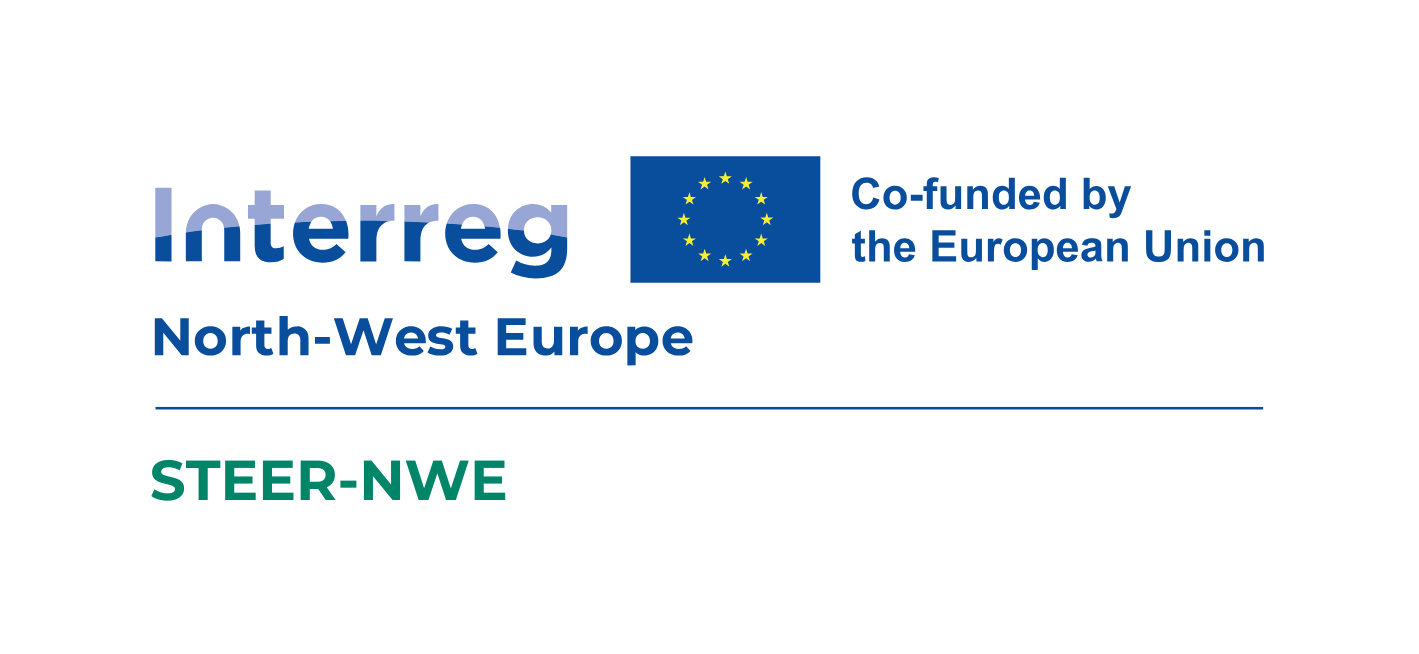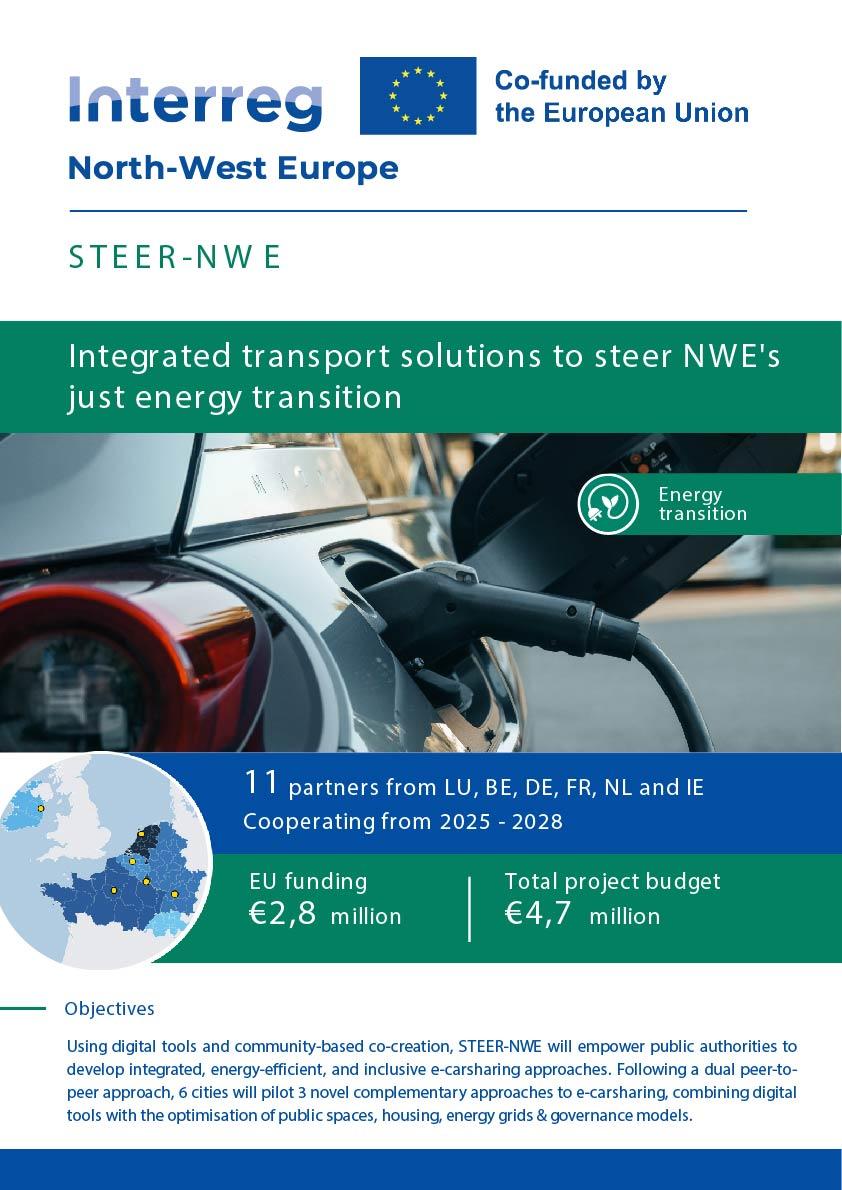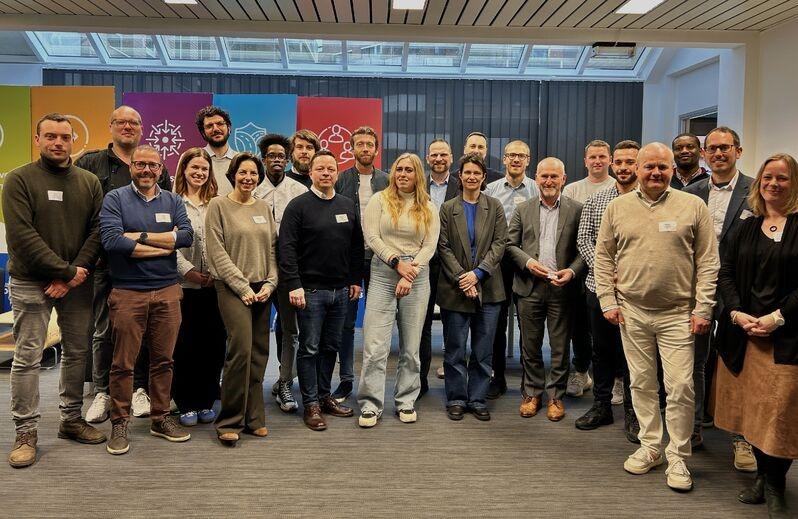STEER - NWE

Project Description -STEER-NWE
Problem definition
Metropolitan authorities across North-West Europe (NWE) face a shared challenge: the dependence on fossil-fuelled private car has led the transport sector to become the largest energy consumer and major contributor to greenhouse gas (GHG) emissions. Measures such as Low Emission Zones (LEZs) are helping to curb pollution, yet they often come with political costs and conflicting interests between energy, housing & transport stakeholders.
Electric carsharing emerges as an energy-efficient solution to support transport decarbonisation and cleaner air, while aligning with the Sustainable Urban Mobility goals of cities and regions. However, there are still several challenges that need to be addressed, such as:
- Current (low) adoption rates of car sharing services
- Misalignment between public authorities and private companies
- Difficulties in creating a viable business model
- Several operators and mobility providers ceasing service or going bankrupt among many others.
Project aims
Running from January 2025 to June 2028, STEER-NWE aims to bridging the gaps in expertise across different sectors and departments to deliver systemic, cross-tested solutions, via transnational cooperation:
a.Public space optimisation & integration with new housing developments
b. Integrated charging infrastructure & energy efficient incentives
c. Adaptive LEZ governance & business models for stakeholder engagement
d. Digitalisation of decision-support and monitoring tools
Using digital tools and community-based co-creation, STEER-NWE will empower public authorities to develop integrated, energy-efficient, and inclusive e-carsharing approaches. Following a peer-to-peer approach, 6 cities will pilot 3 innovative and complementary approaches to e-carsharing, combining these digital tools with the optimisation of public spaces, housing, energy grids & governance models.

Deliverables/results
The project will enable upscaling through a transnational leader-follower approach, supported by a comprehensive cross-sectoral Strategy and tailored Local Action Plans. Additionally, the STEER-NWE Academy will enhance the capacity of +120 practitioners, while a transnational Roadmap will guide long-term replication across NWE. Overall, the project will contribute to increasing accessibility to sustainable transport modes, promoting more liveable and healthy cities, as well as reducing socio-economic disparities and car-dependence, with the subsequent threat of transport poverty.
Project partners and locations
The project brings together 11 complementary cross-sectoral partners from 6 NWE countries (The Netherlands, France, Belgium, Ireland, Germany, and Luxemburg), to reduce energy consumption and GHG emissions.
The project partners include:
- Six pilot cities and regions:
- Brussels Capital Region (BE)
- City of Amsterdam (NL)
- City of Stuttgart (DE)
- Fingal County Council (IE)
- Greater Paris Metropole (FR)
- City of Differdange (LU)
- Four knowledge partners:
- Luxembourg Institute of Science and Technology (LU), which is also the Lead Partner
- Electricity Supply Board (IE)
- Île-de-France Regional Planning Institute (FR)
- Way2Go (BE)
- One network partner:
- POLIS network (BE)
STEER-NWE has a total budget of 4.7 million €, of which 2.8 million € of EU funding from the INTERREG NWE Programme.
